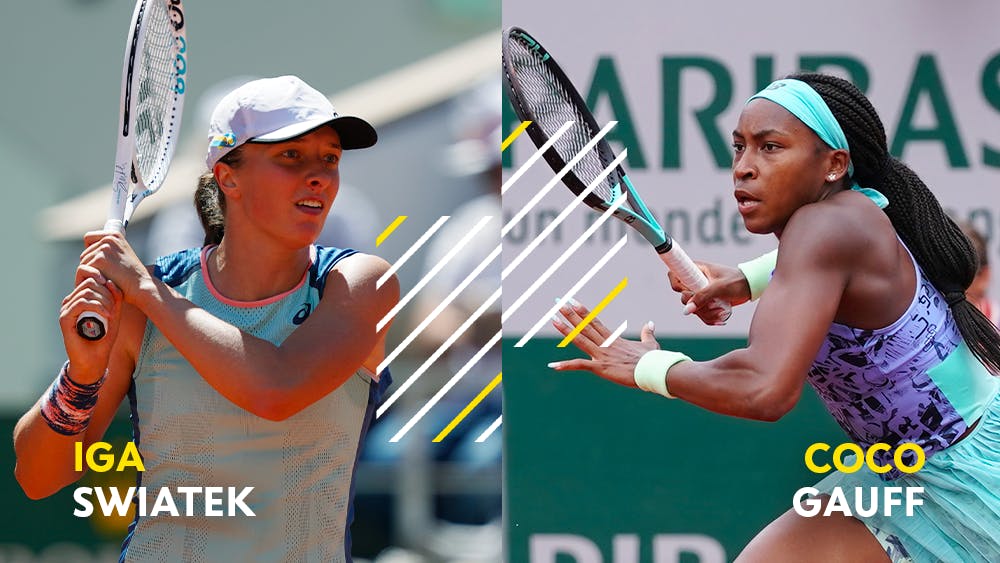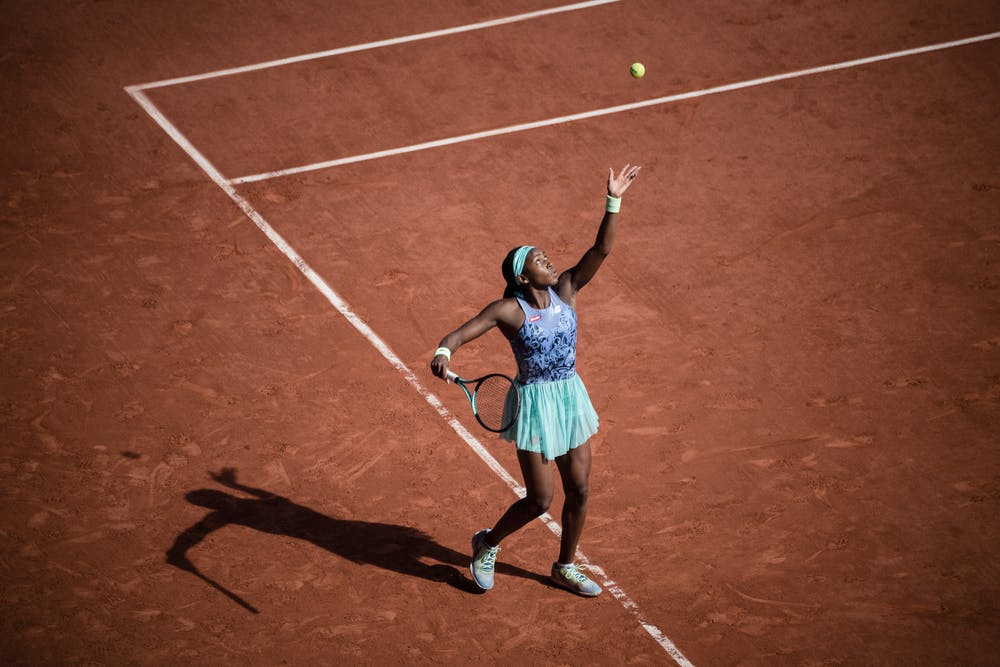Gauff’s backhand is more secure than her forehand, which can yield errors when she’s under pressure. It's also a big weapon. She’s hit 38 winners on the backhand side, compared to 34 for Swiatek. But she’s also safer with it, having made just 37 unforced errors to the 60 of Swiatek.
Getting in a position to rally cross-court and start to work over the Swiatek backhand might be the tough part, but the American has power and the movement to get to most balls, so this could be a crucial part of the battle.
The Gauff second serve
Gauff has a tendency to get a bit tight on second serve at times, and the double faults can flow.
The American has hit a total of 33 double faults in six matches and against someone like Swiatek, that could be fatal. The Pole has been all over the second serves of her opponents so far, winning 66 per cent of points.
Gauff, by contrast, is winning just 45 percent of points on her own second serve. She lands her first serve 68 per cent of the time and wins the point 70 per cent of the time on first serve. But when she misses, she’s going to be under attack.
Swiatek’s also been rock solid on her own serve. So though Gauff’s been winning a whopping 68 per cent of points on her opponents’ second serves, the Pole is winning 63 per cent on her own second serve.
Gauff has more power on serve than most of Swiatek’s victims so far – she averages 164kmh on first serve to 151kmh of Swiatek – but something has to give when these two clash.
 ROLAND-GARROS
18 May - 7 June 2026
ROLAND-GARROS
18 May - 7 June 2026



